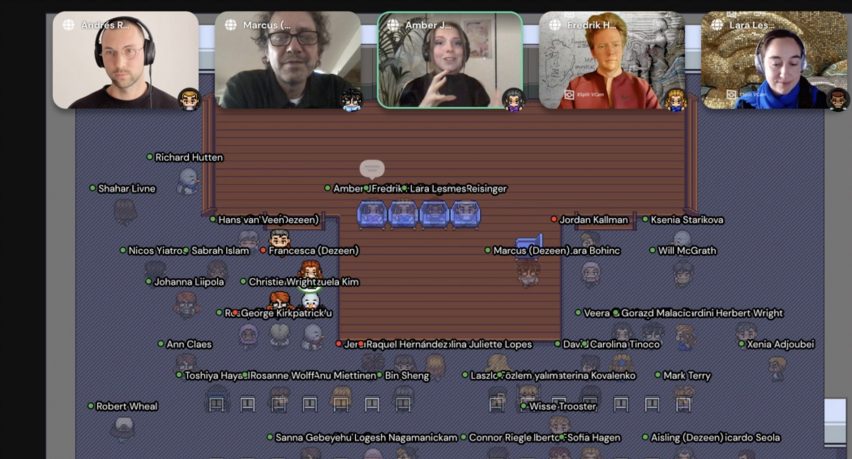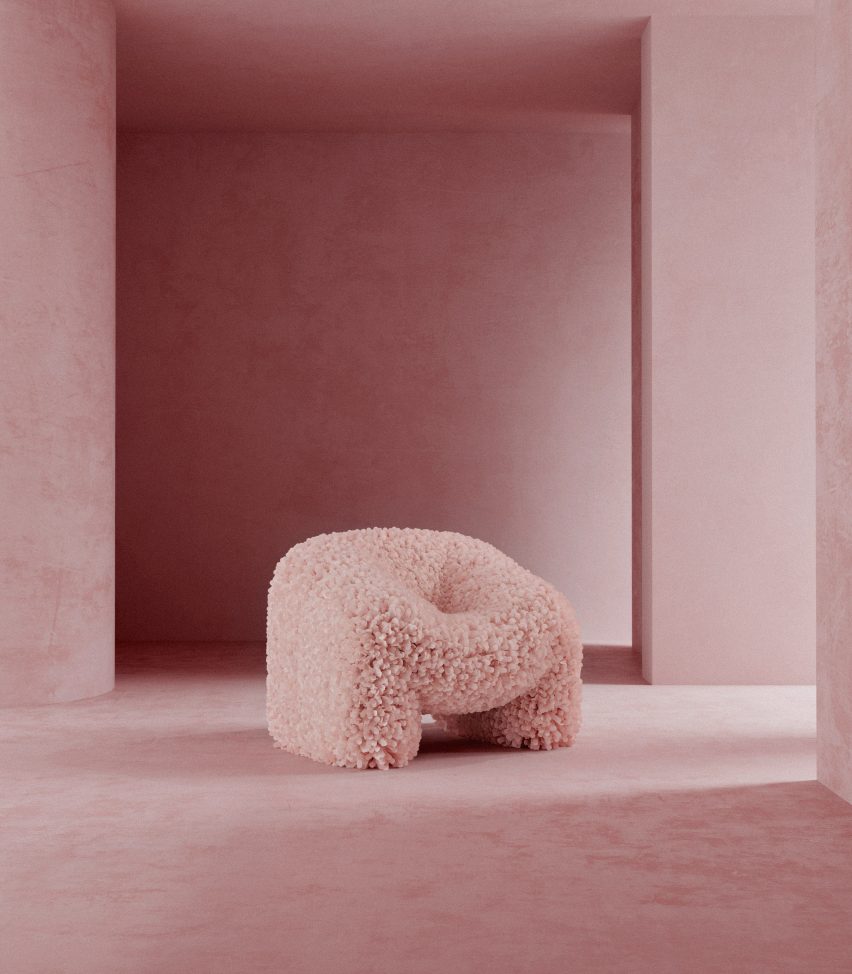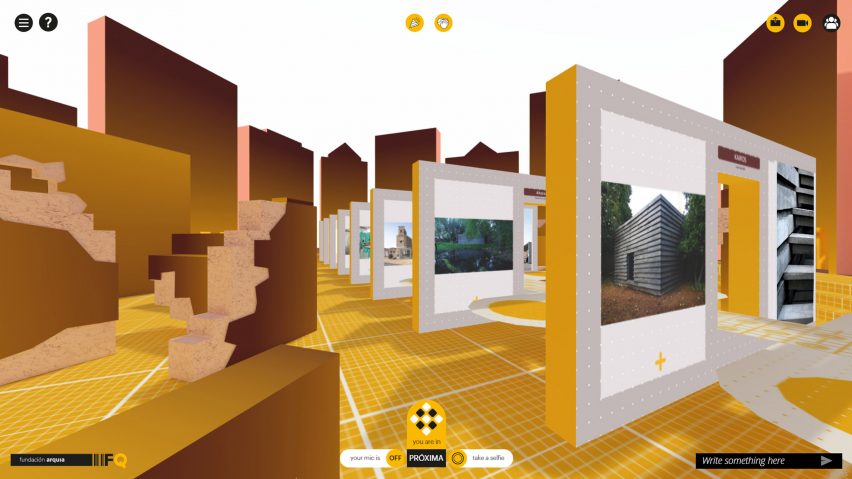Andrés Reisinger, Space Popular, Amber Slooten and Charlotte Taylor discuss how "the virtual world and the real world will integrate"
This video of Dezeen Club's first metaverse meet-up on 7 April features speakers Space Popular, Andrés Reisinger, Amber Jae Slooten and Charlotte Taylor discussing the rise of virtual worlds.
Over 200 attendees represented by avatars joined the meet-up, held at a virtual rooftop bar hosted in spatial video-chat platform Gather.
The event was organised to explore the idea of the metaverse, which is the emerging digital universe where people can experience a parallel life to their real-world existence.
At the event, speakers discussed topics including the rise of cryptocurrencies and NFTs that allow people to trade digital goods and the impact of the metaverse on the human mind and body.

"The virtual world and the real world will integrate," said Slooten, founder of virtual fashion studio The Fabricant. "For me, that is a very interesting part. Where does my physical body end and where does the digital body begin?"
"The next step would be to really start to challenge the way that we occupy a body at all," added Hellberg, whose studio Space Popular recently designed a venue for the first-ever architecture conference held in virtual reality.
"In VR if you have a tail, for instance, it takes only a few minutes before your body gets used to having a tail, which means that you'll very soon get ready for having another arm and then all sorts of other body-related things."
The metaverse can potentially dissolve the boundaries between the human body, fashion and architecture, Hellberg said.

The panel also discussed how NFT auctions are offering designers a new business model by allowing them to sell virtual furniture, clothes and buildings.
Slooten‘s fashion house The Fabricant designs digital-only clothing for virtual bodies to wear and pioneered the first digital-only garment, which sold as an NFT for $90,500.
Reisinger, a designer who recently held an NFT furniture auction that netted more than $450,000, explained how virtual objects can become more valuable than their physical counterparts.
"Digital has quite a few qualities that are verifiable such as scarcity and traceability," he said, noting that the virtual model of his Hortensia chair is worth more than the physical version.
Reisinger addressed concerns about the environmental impact of the NFT market, drawing attention to disproportionate lack of scrutiny applied to established markets.
"The ecological impact that NFT processes generate are insignificant compared to the damage that the current banking system is causing to the environment," he said.

The speakers were optimistic about the growing role that NFTs and virtual spaces are playing in the design world.
"We are not escaping from reality," said Reisinger. "We are just expanding our consciousness into this digital realm."
Slooten expressed hope that new virtual forms could revolutionise how we connect to others. "To me, this feels like a new interconnected web that will create more of a world-centric view, rather than an egocentric view," she said.
Lesmes summarised the timeliness of the discussion, stating: "love it or hate it, if you are not a part of it, then you'll be late."

Dezeen Club is a response to the fact that people are missing the social contact and chance encounters of real-world events as a result of the pandemic.
The club, which will initially be invitation-only, will give members access to enhanced functionality on Dezeen's websites as well as access to VIP events in both cyberspace and the real world. For more details, email [email protected].